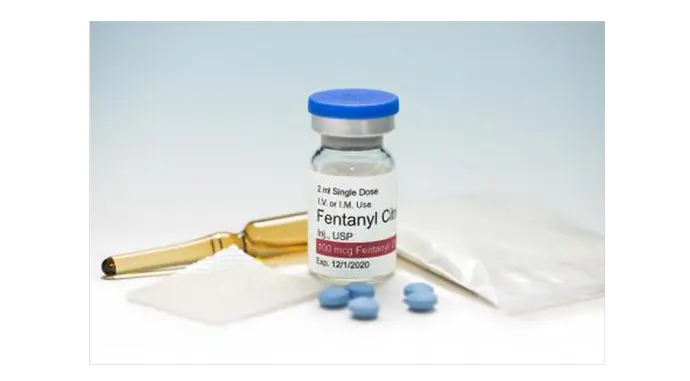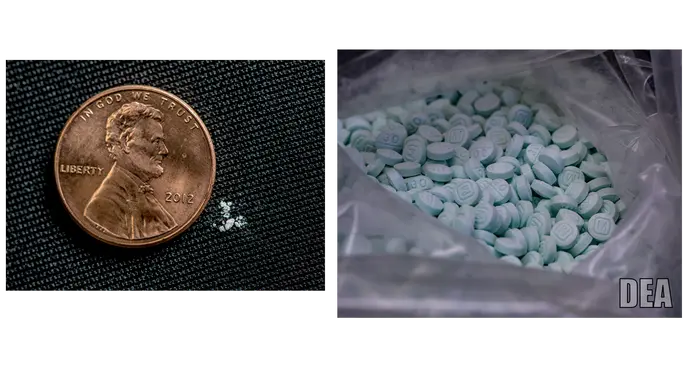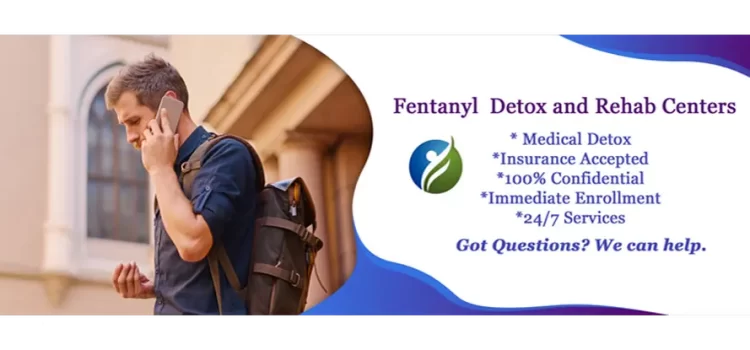Symptoms of Fentanyl Withdrawal
When a person develops a physical dependency on fentanyl, they will start to develop withdrawal symptoms when they stop taking it. These withdrawal symptoms can become so unbearable that a person relapses and starts to use again just to feel better. This is one of the main reasons that someone seeks help for fentanyl addiction and misuse. Seeking help from a detox center program is usually the first step in recovery for most people who have become dependent on opioids. When detox is completed, it is highly recommended to enter into an inpatient fentanyl addiction rehab center program to help with the mental side of the addiction condition.These symptoms can include the following:
*Cold flashes
*Diarrhea
*Severe cravings
*Insomnia
*Restless leg syndrome and muscle spasms
*Cold flashes
*Muscle ache and bone pain
*Goosebumps and clammy skin
Behavioral withdrawal symptoms can include:
*Anxiety
*Depression
*Irritability
*Mood Swings

Prescription fentanyl is available under such names as Actiq®, Duragesic®, and Sublimaze® in the form of tablets, an injectable liquid, lozenges and patches.
When it is intentionally misused, fentanyl often shows up as a powder, spiked on blotter paper or is mixed with or substituted for heroin and other street drugs.
Image from DEA.gov
Signs and Symptoms of Fentanyl Dependency
When a person is worried about whether they have become addicted to opioids, chances are they have already developed a dependency on opioids. Substance abuse disorders are a treatable chronic medical condition that involves complex interactions between brain chemistry, genetics, life experiences, and environmental challenges. Addiction is an uncontrollable urge to use despite knowing the harmful consequences that escalate with continued use.You may have become addicted to Fentanyl if you have experienced two or more of the following symptoms as laid out by the 5th edition of the diagnostic and statistical manual for mental disorders, often used by clinicians and doctors who have been trained to recognize opioid abuse disorders and other drug misuse disorders.
It is possible to become addicted to opioids or fentanyl if you are using them as prescribed; you can build up tolerance and experience withdrawal symptoms. In cases where fentanyl is prescribed for long-term pain management, there is a diminished sensitivity to its effects, and some people will have to use more of the medication to have the same desired effect.
The symptoms of an opioid abuse disorder can include the following:
*Inability to complete tasks, including work, home, or school.
*Continued use of fentanyl or opioids even when it negatively impacts your relationships.
*Having cravings for opioids or fentanyl.
*Using opioids longer than you intended.
*Using more opioids to get the same desired effect.
*Tolerance is going up.
*Using opioids or fentanyl during physically dangerous tasks.
*Continued use after noticing physical or mental health problems developing.
*Stopping things that you previously enjoyed due to fentanyl or opioid misuse.
*Confusion.
*Slurred speech.
*Balance problems.
*Ongoing constipation.
*Reduced sex drive.

Fentanyl is a powerful synthetic opioid. Medically, it is used to treat severe pain or to manage pain after surgery, and is sometimes used to treat patients with chronic pain who are physically tolerant to other opioids.
Image from DEA.gov
Fentanyl Overdose
Fentanyl misuse can be life-threatening. When a person is starting to overdose from fentanyl or opioids there are potentially life-threatening consequences and lifelong side effects that can have a serious impact on your life. When a person overdoses on fentanyl, their oxygen intake or breathing slows down or completely stops, reducing the intake of oxygen to the brain, causing a condition called Hypoxia. This can lead to brain damage, coma, or even death in some cases. Overdosing from opioids or fentanyl is a medical emergency that can be reversed with Naloxone. Getting help is the best way to handle this addiction, either through a fentanyl detox program, a medication-assisted treatment program, or through an inpatient fentanyl substance abuse treatment program. As of 2022, you can buy Narcan without a prescription from your healthcare provider in all 50 states, including Puerto Rico. Individual states may have implemented their own rules about purchasing Narcan without a prescription. In some states, a pharmacist must have a standing order from a healthcare provider to dispense Narcan without a prescription. This means that it isn’t mandated by the state. Healthcare providers and pharmacists can form their own agreement to allow the sale of Narcan without a prescription.If you are experiencing withdrawal symptoms from stopping your fentanyl medication (in case of a medical emergency, call 911) or call us today. We can help you find a medicated detox program for fentanyl withdrawal now. Our intake specialists will be able to give you options for treatment and detox in and outside of your area. Please contact us by phone for immediate assistance. This is a necessary step in beginning the recovery process for yourself or for a loved one. Our addiction treatment specialists and staff have over 25 years of experience in helping people find effective and affordable treatment for all addictions. What you tell us is completely confidential. We are HIPAA compliant. We are here to answer your questions and to get you (or a loved one) into treatment today. For immediate intake, call us now.
1-800-513-5423

Sources
Opioid Withdrawal
Fentanyl Withdrawal
Erik Epp – Content Author




